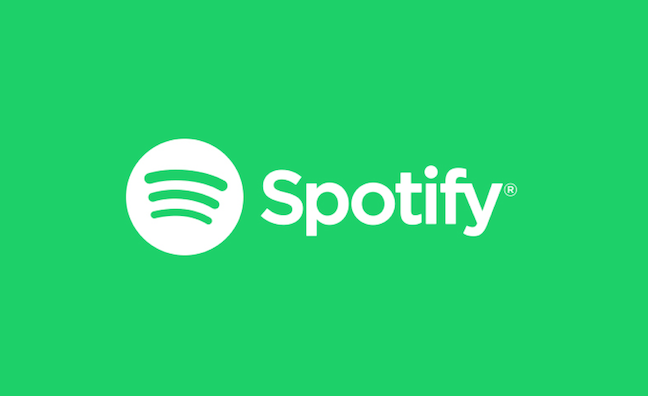Well, that escalated quickly. In the few days since US senator Elizabeth Warren called into question the practices of Amazon, Google and, crucially, Apple, Spotify has weighed in on the row, hurling accusations of “anticompetitive conduct” and instigating a full-blown war with the tech giant.
Spotify became embroiled in the row at the end of last week, when senator Warren said in a speech that Amazon, Google and Apple are trying to “snuff out competition.” Inspired by Warren’s words, Spotify’s global head of comms and public policy Jonathan Prince took it upon himself to offer the following unprecedented statement: "Apple has long used its control of iOS to squash competition in music, driving up the prices of its competitors, inappropriately forbidding us from telling our customers about lower prices, and giving itself unfair advantages across its platform through everything from the lock screen to Siri.
"You know there’s something wrong when Apple makes more off a Spotify subscription than it does off an Apple Music subscription and doesn’t share any of that with the music industry. They want to have their cake and eat everyone else’s too."
He also aired his frustration that Apple wouldn’t allow Spotify to present the following message to users of its ad-supported service: ‘"You discovered a premium feature! You must have a Premium subscription to unlock it’.
The message was apparently rejected by Apple because it fails to fall in line with its policy of pushing users toward the App Store to purchase premium features. This, said Apple, would direct users away from the app, therefore circumventing Apple’s ‘app tax’.
Essentially, the ‘app tax’ is one of the various ways by which Apple generates money to fund its services. So, if you want to upgrade to Spotify’s premium services outside of the app, it’ll cost you $9.99 per month; do so via the in-app purchase and it’ll set you back $12.99 per month – a difference of 30%.
Not only is Spotify unhappy that its customers are being asked to pay 30% more for the services through the app, it is particularly upset that its streaming rival Apple Music only costs $9.99 on the iOS store, hence the ‘anticompetitive’ jibe.
Unsurprisingly, Apple has taken exception to Spotify’s claims and has since responded in equally forthright fashion. Over the weekend, the two companies traded blows via leaked letters between Spotify’s general counsel Horacio Gutierrez and Apple counterpart Bruce Sewell, with the latter making clear in no uncertain terms that Spotify needs to tread carefully, reminding the firm that Apple has contributed significantly to Spotify’s fortunes.
Gutierrez said in his letter: "We cannot stand by as Apple uses the App Store approval process as a weapon to harm competitors.
"This latest episode raises serious concerns under both US and EU competition law.
"It continues a troubling pattern of behaviour by Apple to exclude and diminish the competitiveness of Spotify on iOS and as a rival to Apple Music, particularly when seen against the backdrop of Apple's previous anticompetitive conduct aimed at Spotify."
Sewell wrote in response: “Since joining the App Store in 2009, Apple’s platform has provided you with over 160 million downloads of your app, resulting in hundreds of millions of dollars in incremental revenue to Spotify. That’s why we find it troubling that you are asking for exemptions to the rules we apply to all developers, and are publicly resorting to rumours and half-truths about our service.”
For the time being, the row appears to have reached an impasse, but — set against a background of Apple steadily gaining on Spotify’s market-leading number of subscribers — Spotify’s decision to call into question Apple’s practices could be potentially damaging to the industry at large.
Aside from the fact Apple reserves the right to simply stop selling the Spotify app from the App Store – a move that could be bruising to the tune of millions of dollars for the streaming platform and also hit the music industry hard – it could risk opening up a proverbial can of worms for all concerned.
By highlighting the subject of US and EU competition law, it’s possible that Spotify could draw the attention of market regulators to the wider streaming market. And who knows where an investigation into a marketplace where costs and fees are more or less uniform across the board could end up…
There’s also the possibility that Spotify will encounter issues with labels and music rights holders – some of whom, lest we forget, own a slice of Spotify’s equity – when renegotiating deals for the service. This poses problems for both Apple and Spotify, with many deals pending on the Spotify app’s availability on the iOS App Store. Meanwhile, confused consumers may shy away from subscribing to anyone until the whole unholy mess is sorted out.
For now, we wait with baited breath to see who blinks first, but with seemingly neither party ready to back down, this one doesn't look like it’s going to end nicely. After all, the music industry may want streaming competition – it’s determined to avoid a repeat of iTunes’ total dominance of the download sector – but it doesn’t want all-out war…









